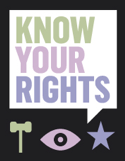The Digital Consequences of Death (or Disability) — Slaw
What happens when people with a presence in cyberspace (really) die? Does the presence become an absence? What do their survivors do about their activities in cyberspace? How do they deal with online assets, or even discover real-world assets that may be locatable only online? How do estate trustees and executors carry out their legal duties with respect to these assets, and the liabilities as well? Many people get most of their bills in electronic form. How can an executor see to paying the debts of the deceased? …
Slaw has dealt with these matters before, in November 2009 and in February 2010. The questions are worth another review.
 A recent
A recent 

